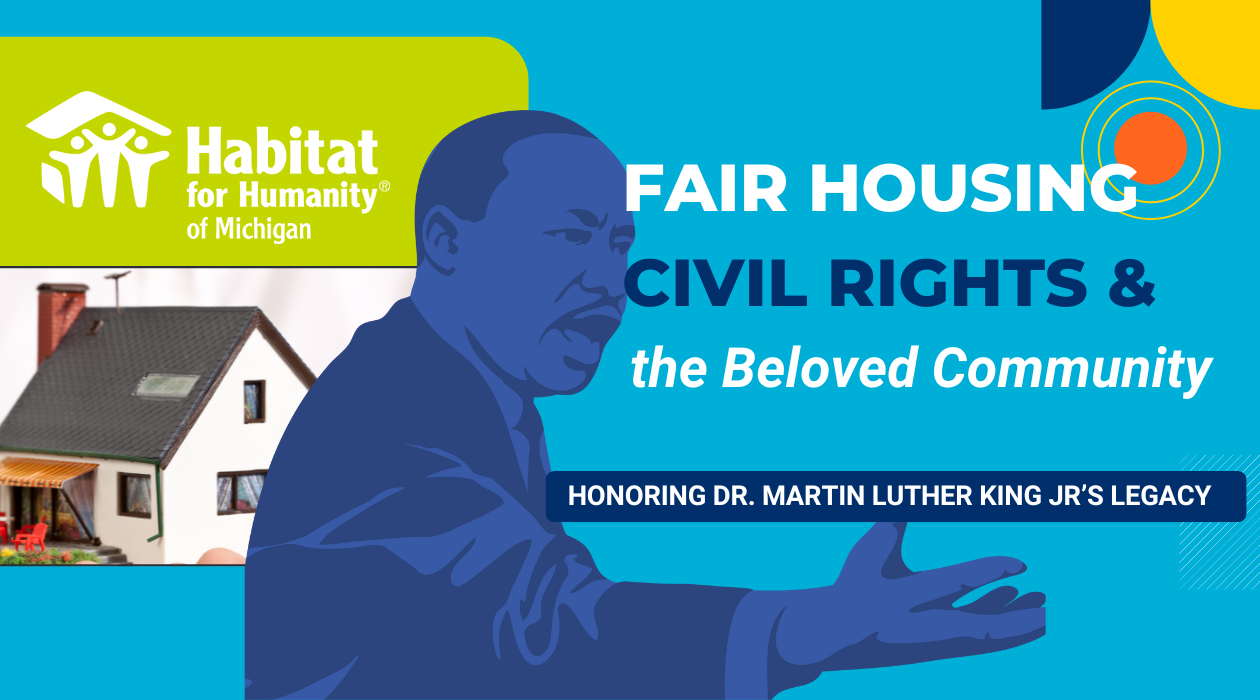
Fair Housing, Civil Rights, and the Beloved Community
April stands as a pivotal month in American history, marked by pivotal moments in the struggle for civil rights and fair housing. It was in April 1968 that the nation mourned the loss of Dr. Martin Luther King Jr., a visionary leader whose tireless pursuit of equality and justice continues to inspire generations. As we reflect on his legacy, we are reminded of the connection between fair housing, the Civil Rights Act, and Dr. King's enduring commitment to building a Beloved Community.
Dr. King's advocacy for fair housing was integral to his broader vision of social justice. He understood that access to safe, affordable housing was not only a basic human need but also a fundamental right denied to many due to systemic discrimination. Throughout his life, Dr. King spoke out against the injustices of housing segregation and urban poverty, challenging society to confront the pervasive racism that relegated African Americans to substandard living conditions.
The passage of the Civil Rights Act of 1968, commonly known as the Fair Housing Act, stands as a testament to Dr. King's legacy and the collective efforts of countless activists who fought for equality. Signed into law on April 11, 1968, just days after Dr. King's assassination, the Fair Housing Act represented a milestone in the struggle for civil rights. It outlawed housing discrimination based on race, color, religion, sex, or national origin, paving the way for greater opportunity and inclusion.
Senator Edward Brooke of Massachusetts played a pivotal role in championing the Fair Housing Act, drawing upon his own experiences of discrimination as a black man in America. As the first African American ever elected to the Senate, Senator Brooke brought a unique perspective to the legislative process, advocating passionately for the rights of marginalized communities. His personal stories underscored the urgent need for fair housing reform and galvanized support for the landmark legislation.
The confluence of Dr. King's assassination and the passage of the Fair Housing Act in April 1968 holds profound significance, serving as a reminder of the ongoing struggle for justice and equality. In the face of national tragedy, Congress acted swiftly to honor Dr. King's life and legacy, recognizing that the fight for fair housing was inseparable from the broader quest for civil rights.
Today, as we commemorate Dr. King's enduring legacy, we must reaffirm our commitment to building the Beloved Community he envisioned—a society rooted in compassion, solidarity, and equality. Habitat for Humanity of Michigan stands for hope and empowerment, working alongside the 45 local Habitats across the state to create affordable housing opportunities for families in Michigan. Through our collective efforts, we honor Dr. King's dream and strive to build a world where everyone has a place to call home.
The intersection of fair housing, the Civil Rights Act, and Dr. Martin Luther King Jr.'s visionary leadership embodies the ongoing struggle for justice and equality in America. As we pay tribute to Dr. King's legacy, let us recommit ourselves to the pursuit of his dream—a Beloved Community where all are welcomed, valued, and empowered to thrive.